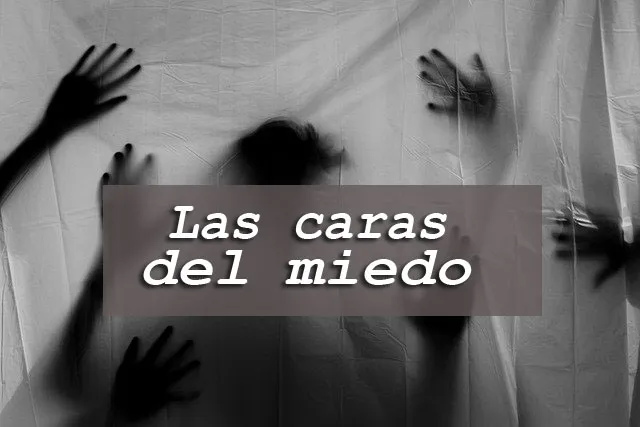
Saludos. Los amigos de la comunidad @humanitas nos invitan esta semana a reflexionar sobre el miedo. Les comento…
Para los primeros humanos el miedo cumplía la función de protección, era una garantía para conservar la vida. Gracias al miedo se evitaba la exposición a peligros potencialmente mortales como el enfrentamiento con animales furiosos, un río crecido, o un voraz incendio.
Esa experiencia de miedo de miles de años se fijó muy hondo en nuestro inconsciente colectivo. En muchos casos sigue teniendo justificación, porque seguimos siendo los mismos seres débiles ante las fuerzas de la naturaleza, pero hay muchas situaciones en las que el miedo estaría de más. Por ejemplo, se me ocurre pensar que con todo el conocimiento acumulado por la civilización, ya nuestra razón debería haber desplazado el temor a los fantasmas que solían aparecer al caer la oscuridad, pero las rémoras vivientes en el inconsciente colectivo no desaparecen fácilmente.
Aparte de esos miedos que siguen teniendo una función de protección, por cuanto nos alejan de los peligros, ya que ciertamente el fuego de un incendio nos puede quemar y el agua en forma de inundación ahogar, hay otros miedos que se siguen transmitiendo culturalmente y que parecieran no tener mucho sentido; algunos de ellos solo persisten como mecanismo de control social.
El miedo al poder del Estado o de los particulares, o a las fuerzas del orden no tendría sentido en un mundo regido por el imperio de la ley. Sin embargo, no todas las sociedades han logrado un nivel de desarrollo en el que la legalidad ampare por igual a todos los ciudadanos , por lo que el miedo a los poderosos se mantiene como un mecanismo más de los tantos que tienden a controlar la sociedad.
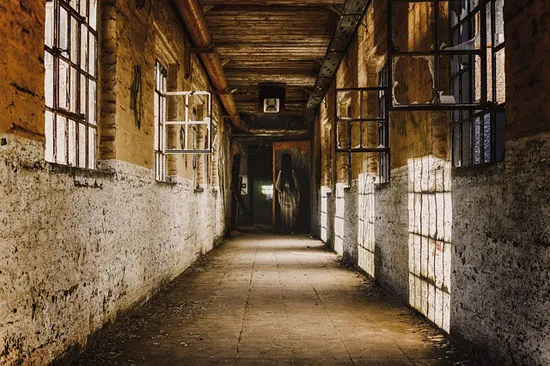
Pero hay otros miedos que aprendemos con la información recibida en la crianza y por las creencias transmitidas en el entorno cultural donde nos formamos, esos también son difíciles de derrotar, y sacárselos de encima requiere un exigente trabajo de autoconocimiento, porque no es fácil reconocer que los tenemos dentro . Este tipo de miedos se convierten en una carga que nos paraliza y nos llevan por el camino de la infelicidad.
En mi caso el miedo al fracaso es uno de los que me ha hecho la vida más difícil. No podría precisar cómo llegó a mí, aunque si puedo identificar palabras y sentencias escuchadas en el entorno familiar que sin duda están relacionadas con él.
En mi familia se solía repetir a cada rato: “más vale pájaro en mano que cien volando”. Debo haber escuchado esa sentencia miles y miles de veces en mi infancia y adolescencia. En aquellos momentos no tenía la capacidad de reparar en la potencia de su mensaje. Pero ahora me doy cuenta que me estaban induciendo a la pasividad, a la conformidad, a ser poco aventurero, a no inventar…
Claro que sería exagerado concluir que por haber escuchado esa expresión desarrollé el miedo al fracaso, pero una sumatoria de mensajes similares, repetidos hasta el cansancio, tienen que dejar alguna huella en cualquier persona.
Sea como sea, el caso es que este miedo ha estado operando en mí al punto de limitarme el emprender muchos proyectos. Más de una vez he dejado de iniciar algún estudio, de tomar algún trabajo, o de anotarme en alguna aventura por el temor al resultado, por pensar que quizá no tengo las habilidades y las competencias para salir airoso de la prueba, por pensar que la situación va a ser más grande que yo y voy a fracasar...Sin embargo, con el correr del tiempo he logrado superar bastante estas creencias limitantes.
Como casi todo en la vida el miedo puede tener varias caras, no siempre tiene que estar marcado por el signo de la negatividad.
Puede prevenirnos de males reales, sí comemos demasiada azúcar, por ejemplo, podemos desarrollar una enfermedad potencialmente incapacitante. También puede servir de catalizador para motivarnos a avanzar en una situación límite; lo vemos en el caso de los migrantes: ante el miedo a vivir en un país donde el futuro se siente como muy comprometido la gente decide correr la aventura y se lanza hacia un futuro incierto. En cierto modo también se está venciendo aquí el miedo a la incertidumbre.
Como siempre he disfrutado mucho haciendo la publicación, una vez más agradezco a los amigos de la comunidad @humanitas por presentarnos estas oportunidades para la reflexión.
Gracias por tu tiempo.


Greetings. The friends of the @humanitas community invite us this week to reflect on fear. Let me tell you...
For the first humans, fear fulfilled the function of protection, it was a guarantee to preserve life. Thanks to fear, exposure to potentially mortal dangers was avoided, such as confrontation with furious animals, a swollen river, or a raging fire.
This experience of fear, thousands of years old, is deeply rooted in our collective unconscious. In many cases it is still justified, because we are still the same weak beings before the forces of nature, but there are many situations in which fear would be superfluous. For example, it occurs to me to think that with all the knowledge accumulated by civilization, our reason should have already displaced the fear of ghosts that used to appear when darkness fell, but the living hindrances in the collective unconscious do not disappear easily.
Apart from those fears that continue to have a protective function, in that they keep us away from dangers, since certainly the fire of a fire can burn us and the water in the form of a flood can drown us, there are other fears that continue to be transmitted culturally and that seem to have little sense; some of them only persist as a mechanism of social control.
Fear of the power of the state or of individuals, or of law enforcement, would make no sense in a world governed by the rule of law. However, not all societies have achieved a level of development in which legality protects all citizens equally, so fear of the powerful remains as one of the many mechanisms that tend to control society.
But there are other fears that we learn with the information received in the upbringing and by the beliefs transmitted in the cultural environment where we are formed, those also are difficult to defeat, and to get them out of us requires a demanding work of self-knowledge, because it is not easy to recognize that we have them inside. This type of fear becomes a burden that paralyzes us and leads us down the road to unhappiness.

In my case, the fear of failure is one of the fears that has made my life more difficult. I could not specify how it came to me, although I can identify words and sentences heard in the family environment that are undoubtedly related to it.
In my family it used to be repeated all the time: "a bird in the hand is better than a hundred in the air". I must have heard that sentence thousands and thousands of times in my childhood and adolescence. At that time I did not have the capacity to realize the power of its message. But now I realize that I was being induced to passivity, to conformity, to be unadventurous, to not invent?
Of course, it would be an exaggeration to conclude that by listening to that expression I developed a fear of failure, but a sum of similar messages, repeated ad nauseam, must leave a mark on any person.
Be that as it may, the fact is that this fear has been operating in me to the point of limiting me from undertaking many projects. More than once I have stopped starting a study, taking a job, or signing up for an adventure for fear of the outcome, for thinking that maybe I do not have the skills and competences to succeed in the test, for thinking that the situation will be bigger than me and I will fail.
As almost everything in life, fear can have several faces, it does not always have to be marked by the sign of negativity.
It can prevent us from real evils; if we eat too much sugar, for example, we can develop a potentially limiting disease. It can also serve as a catalyst to motivate us to move forward in a limit situation; we see it in the case of migrants, faced with the fear of living in a country where the future feels very compromised, people decide to take the adventure and launch themselves into an uncertain future. In a way, the fear of uncertainty is also being overcome.
As always I really enjoyed doing the posting, once again I thank the friends of the @humanitas community for presenting us with these opportunities for reflection.
Thank you for your time.
Translated with www.DeepL.com/Translator (free version)

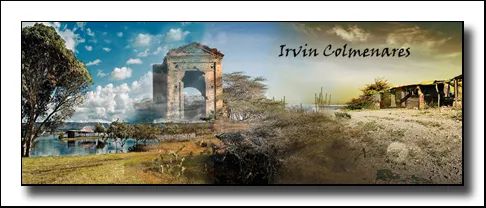


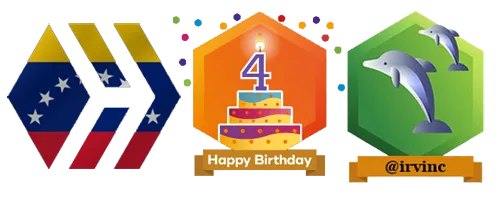

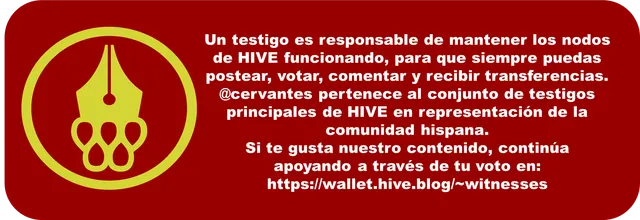
Te invito a apoyar este proyecto como witness y a formar parte de esta gran comunidad uniéndote a su Discord en el siguiente enlace:
Discord de la comunidad Cervantes

You can vote for @ocd-witness, with HiveSigner or on Hive Witnesses.


Banner obsequio de los amigos de @rutablockchain
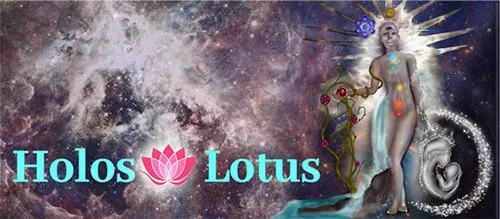

Comunidad Be Entrepreneur



Banner obsequio de los amigos de @rutablockchain


Comunidad Be Entrepreneur
